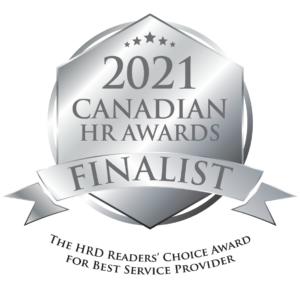Human Resource Consulting & HR Outsourcing Company Toronto
Working For Workers Act, 2021: Significant Changes to Employment Legislation
Working for Workers Act – it’s official!
As you may be aware, over the past several weeks there have been a number of legislative changes that may have an impact on you and your organization.
On December 2, 2021, Bill 27 – the Working for Workers Act, 2021, received royal assent, officially making it a new law. The Act introduces significant changes to employment laws in Ontario, including the following:
▪ Requirement that employers with 25 or more employees institute a disconnect from work policy;
▪ Prohibits employers from entering into non-compete agreements with employees, with limited exceptions; and
▪ Requirement that temporary help agencies and recruiters obtain a license to operate in Ontario, and are prohibited to charge fees to foreign nationals.
Below we have provided a summary of the key elements of the Act and some of the important takeaways for employers.
Disconnect from Work Policy
As of January 1, 2022 businesses that employ 25 or more employees must have a written policy in place with respect to disconnecting from work by March 1 of that year. For the purposes of initial compliance, employers have 6 months from the date of Royal Assent to enact the policy, so employers will need to have this policy prepared by June 2, 2022.
Disconnecting from work is defined as “not engaging in work-related communications, including emails, telephone calls, video calls or the sending or reviewing of other messages, so as to be free from the performance of work”.
The government has not yet defined the scope or content of what should (or shouldn’t) be included in this policy; however, has provided some examples such as employers’ expectations about response time for emails, or encouraging the use of out-of-office responses when employees are not working.
A copy of this policy in writing must be provided to each employee within 30 days of preparing the policy or, if an existing written policy is changed, within 30 days of the changes being made.
Non-Compete Agreements are Prohibited
Under Bill 27, employers are prohibited from entering into employment contracts or other agreements with employees that is or includes a non-compete agreement (although there is an exception for executives).
Executives are defined as “any person who holds the office of chief executive officer, president, chief administrative officer, chief operating officer, chief financial officer, chief information officer, chief legal officer, chief human resources officer or chief corporate development officer, or holds any other chief executive position”.
There is also an exception in the situation where there is a sale of a business, whereby the exception allows the purchasing businesses to restrict the right of the seller to compete with the business where the seller becomes an employee of the purchaser.
Non-solicitation covenants and covenants protecting employers’ confidential information and intellectual property remain permissible and unaffected by the Act.
Prohibition on Employers or Recruiters Charging Fees to Foreign Nationals
The Employment Protection for Foreign Nationals Act, 2009 was amended by Bill 27 by prohibiting employers and recruiters from charging a fee to a foreign national in connection with the recruitment or employment of a foreign national. In addition, recruiters, employers, or prospective employers can only engage or use the services of a recruiter who is licensed for the purpose of the services. The Act sets out the relevant information that an individual would need to provide if they are applying for a licence to act as a recruiter in connection with the recruitment or employment of foreign nationals.
Failure to comply with this prohibition may carry fines and/or the Director of Employment Standards may not issue or renew the recruiter’s licence.
Amendment to The Occupational Health and Safety Act
An amendment will be made that will require organizations to provide access to the washroom to persons making deliveries to and from the workplace.
And finally, one last thing.. Update on ROE Coding for Employers
Employment and Social Development Canada recently provided additional guidance to employers to assist when issuing records of employment (“ROEs”) for employees related to the COVID-19 pandemic. Note: In most cases, if an employee loses or quits their job due to non-compliance with a mandatory vaccination policy, they will not be eligible for regular EI benefits.
▪ When an employee does not report to work because they refuse to comply with the mandatory COVID-19 vaccination policy, an employer is to use code E (quit) or code N (leave of absence) on that employee’s ROE.
▪ When an employee is suspended or terminated for non-compliance with a mandatory vaccination policy, the employer is to use code M (dismissal).
When any of these codes are used, the employer may be contacted by Service Canada to clarify the circumstances surrounding the employee.
Next Steps & Action Items…
Employers should review their employment contract templates to ensure that there are no non-competition provisions in their agreements, except where an employee falls under an exception.
Furthermore, employers with more than 25 employees on January 1, 2022, should start thinking about their Disconnection from Work policy, which they will need to implement by June 2, 2022. Employers should also consider what other policies addressing hours of work and/or overtime might need to be addressed to ensure consistency with their new Disconnecting From Work Policy.
Peak Performance HR would be happy to support you with ensuring compliance with these changes and we would welcome an opportunity to partner.
Schedule A Call or Inquiry

Lisa Kay & PPHR in the Media
Based in Toronto and serving Mississauga, Oakville, Richmond Hill, Vaughan, Brampton, Hamilton, Aurora & Newmarket, Peel Region and Ontario. PPHR is an HR Outsourcing Company in various industries, including software development HR Outsourcing Company, information technology (IT HR Outsourcing), power, utilities HR Outsourcing and manufacturing HR Outsourcing.

